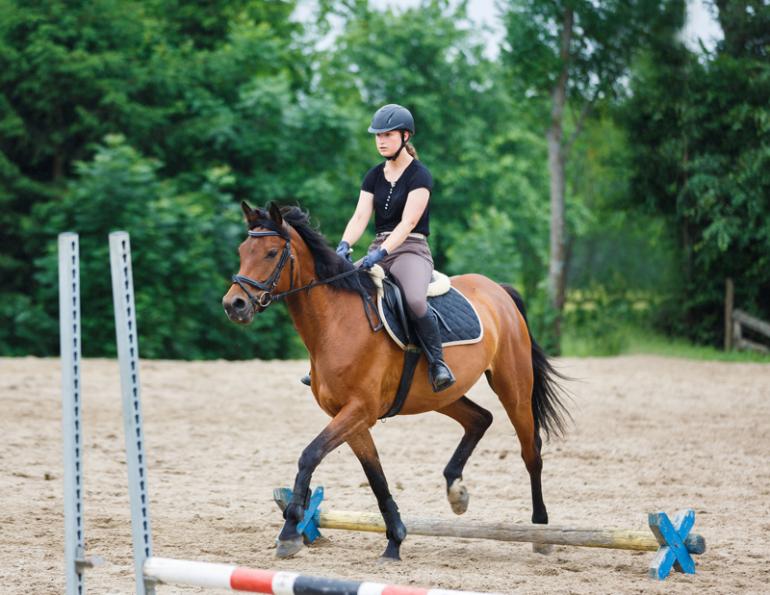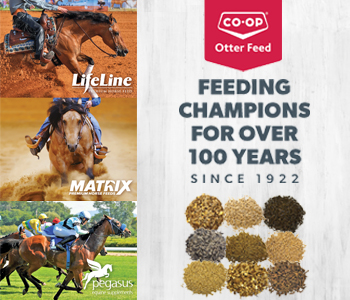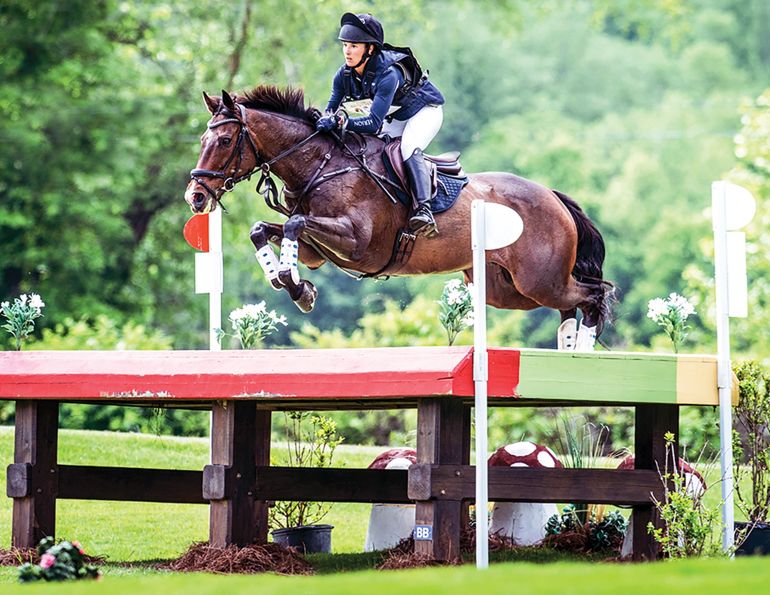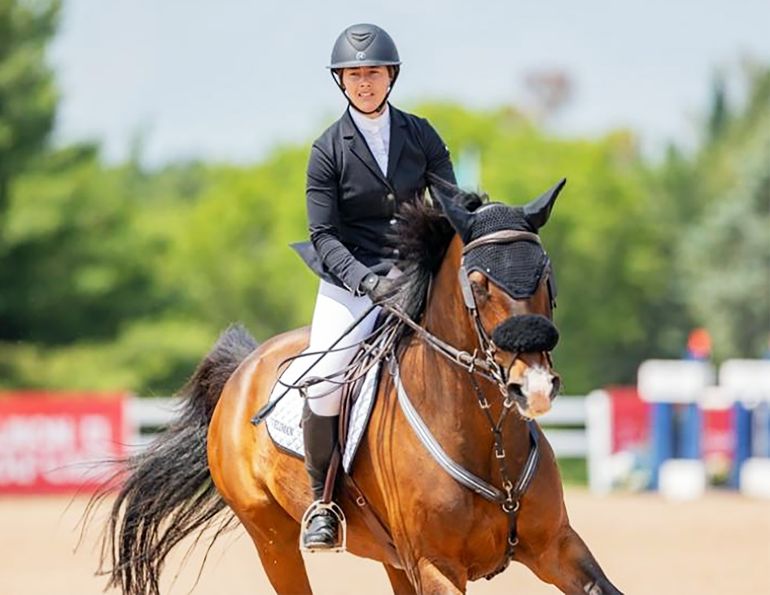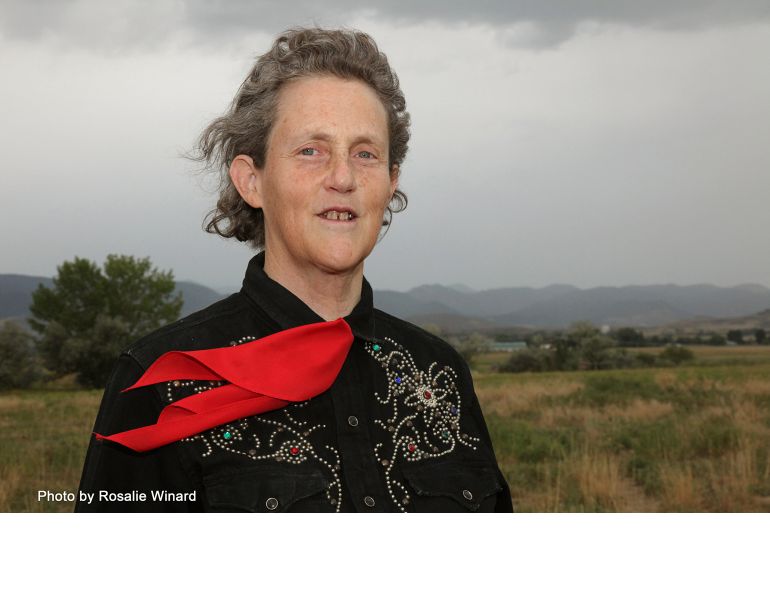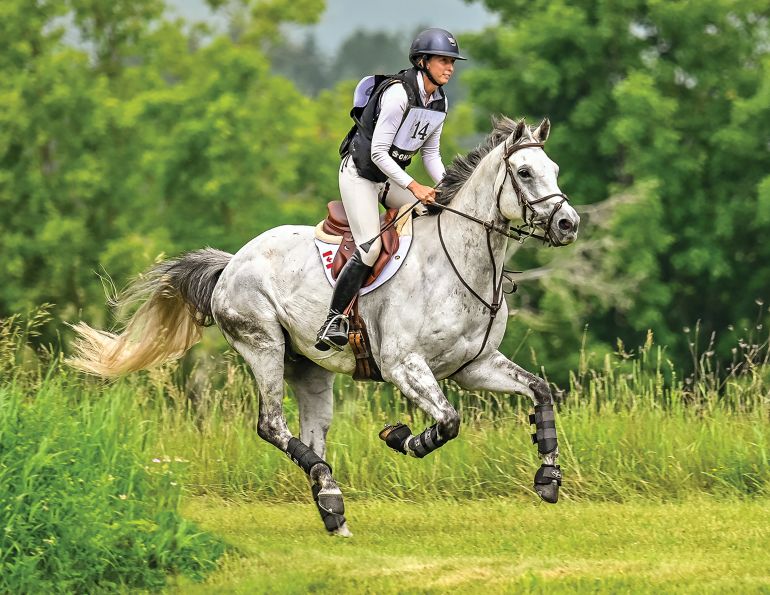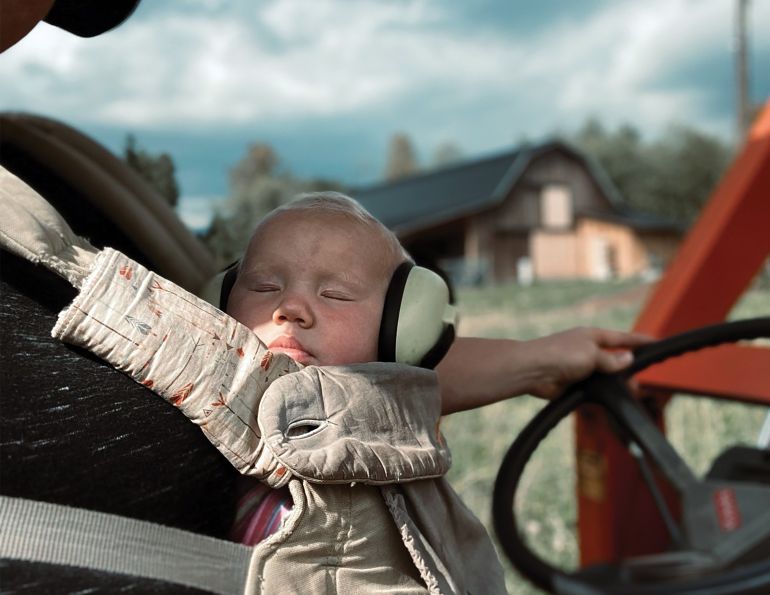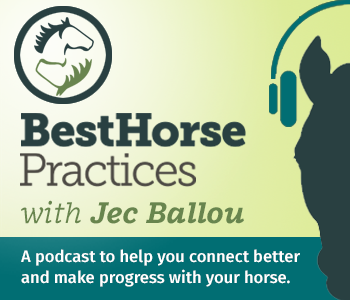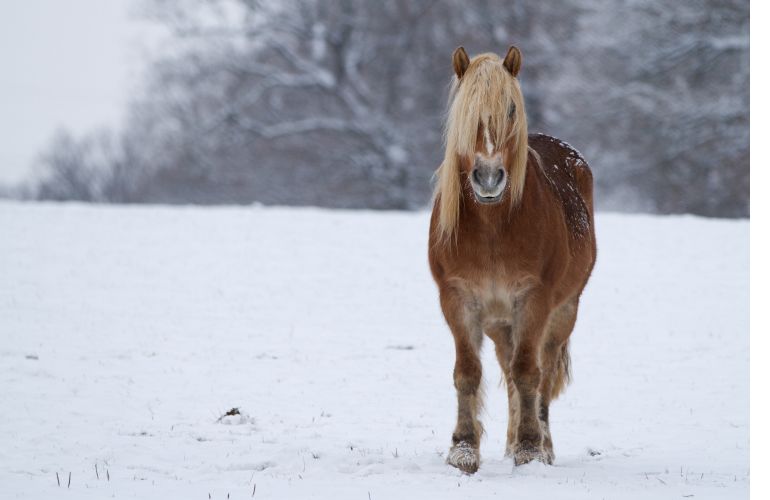The 21st Century Rider
By Tania Millen, BSc, MJ
Many Canadian riders are throwing their leg over horses well beyond the age when others are pursuing more sedentary activities. For example, about 19 percent of Alberta Equestrian Federation members were over the age of 56 from 2015 to 2018. In British Columbia, approximately 19 percent of active Horse Council BC members were over age 60 in 2018. Meanwhile, in Quebec last year, about 12 percent of Cheval Quebec members were age 60 and over. Nationally, approximately 22 percent of Equestrian Canada sport licence holders were older than 50 in 2018, and 10 percent were older than 60.
So how can riders delay hanging up their spurs and maximize riding enjoyment into their golden years? What challenges do aging riders face, and how do they address them?
To find out, I asked two over-60 riders to share their experiences, and also sought guidance from an international three-day eventing coach, and a physiotherapist with equestrian clients. Here’s what they said.
Enjoying Horses Differently

Grit High. Photo: Sheri Scott
British Columbia-based Grit High got serious about eventing in her late 40s, subsequently qualifying for the 1988 Olympics. She rode her last CCI*** three-day event when she was 57, and after retiring her event horse, bought a four-year old warmblood prospect. In her 60s, High rode dressage with Leslie Reid and jumped with Eddie Macken. She says, “I never thought of myself as being old. I could do as much as anybody else when I was competing, so I don’t think age was an issue then.”
By her late 60s, High had developed her youngster into a competitive powerhouse, dabbling in 1.2 m jumper classes and pursing dressage to Prix St Georges level. But when she turned 70, High admits, “You become aware of your body not playing fair with you anymore. When you’re 70, you know you’re in there with the seniors. Right?”
Now in her late 70s, High says it wasn’t until her 70th birthday that she decided to give up competing and enjoy horses differently.
“Part of the reason I quit competing when I was 70 was because I realized that I wasn’t getting any better, and it felt a lot more like hard work than fun. I could have gone to Grand Prix (dressage), but I just ran out of energy. I’d been doing it long enough.”
After retiring from competition, High struggled. “You give up competing and it’s like retiring. You have to find something to give you incentive and motivation.”
Related: Switching Coasts - Moving Across Canada with Horses

When she turned 70, three-day-eventer Grit High decided to stop competing and enjoy horses in a different way. She still rides regularly, but her motivation now is to stay healthy and have fun. Photo courtesy of Grit High
Although still riding a few days every week, High says her motivation is staying healthy and having fun. She walks every day, does Pilates twice per week, and has a personal trainer once a week. High says at her age, “Your muscles deteriorate so quickly when you’re not doing anything. You have a little setback and it’s really hard to get back to where you were. Remember that! Don’t get injured.”
She also says, “It’s not fun when you get older, but as long as you’re active and keep doing what you’re doing, you don’t think about it so much.”
Feeling Grateful

Now in his 60s, Wayne Sawchuk has become more aware of the need to be careful and to stay in shape so he can keep following the backcountry trails he has been riding since the mid-1980s. Photo courtesy of Tania Millen
Wayne Sawchuk has some similar sentiments, although a very different riding background. Sawchuk is in his early 60s and lives in northeast BC, where he does three-month pack trips through the Muskwa-Kechika area every summer. He grew up with backyard trail horses and started doing pack trips in his 20s when he realized that horses could carry his backpacking gear.
Related: Becoming a Horseman: What Does it Mean Today?
“Pretty much every summer since the mid-1980s I’ve spent three months out on the trail in the summertime,” he says. “I feel pretty fortunate to have been able to do that and to continue it. It’s something to be grateful for.”
But in the past few years, Sawchuk has become more aware of the need to be in shape, saying, “I think you have to pay more attention and get yourself in shape. It does take longer now. I do it as part of my normal life … like walking instead of taking the car.”
“I don’t want to take the chance of injury. I’m pretty careful now, compared to what I used to be,” he admits.
Sawchuk is also grateful for the trips he does, saying, “I don’t take it for granted anymore. I used to think I could always do this. There was never any question about that. But now I realize that I’m not going to be doing this forever, and I can see the horizon over there. It’s not very far away, and every day that I’m out there, I appreciate it more. I get more out of it. I’m not quite so anxious. I’m a lot calmer. Any year could be my last year. I’m pretty lucky to be out there, no doubt about that.”
Continuing to Ride

Above: Laframboise encourages older riders to find the right horse and to keep riding.
Below: Lorraine Laframboise competing at the Kentucky Rolex Three-Day-Event in 1980 at age 25. Photos courtesy of Tania Millen
 z
z
Lorraine Laframboise encourages older riders to follow their passion and keep riding. She grew up on her family’s farm in Quebec, subsequently competing at the Kentucky Three-Day Event in 1980 and coaching the Canadian Three-Day Event Team in the mid-1990s. Now in her early 60s, Laframboise is an international-level Master Coach. She says she wouldn’t be surprised if the number of people riding after age 60 is increasing. “I think there’s a push to get out of the city and go back to horses.”
Laframboise continues, “I think people are drawn more and more to (three-day) eventing as they get older. People really appreciate the authenticity of the sport, and that it doesn’t require expensive horses. It’s very accessible to most people who genuinely enjoy riding.”
But Laframboise says that it’s important for older riders to have the right horse, and admits if she was horse shopping for an older rider, she’d look for an Appendix Quarter Horse that’s light on its feet, handy, and has a good brain.
In terms of coaching, Laframboise finds that the availability of outside training opportunities and competitions really affects older riders, and says, “For people over 50, and definitely over 60, the less they do, the more nervous they get. I have to manufacture circumstances to get my older riders out riding in the snow and mud.
Related: Parenthood in the Horse Industry
“They [older riders] need two or three more training sessions to lower their anxiety, to be able to really practice their physical reaction time,” she says. “As you get older you’re more concerned about injuries. Nobody wants to fall. You can’t afford to do that when you’re older.”
Looking After Your Body

Physiotherapist and a rider herself, Sandra Sokoloski helps riders restore optimal movement patterns in their bodies. Riding can be enjoyed at any age, but it’s essential to stay active to keep riding well as we get older. Photos courtesy of Sandra Sokoloski

Sandra Sokoloski’s clients have similar challenges to those experienced by High, Sawchuk and Laframboise. As a physiotherapist – and a rider herself - Sokoloski has spent the past 15 years using specialized techniques and equipment to help her riding clients restore optimal movement patterns in their bodies.
Over 50 percent of Sokoloski’s clients are in their late 50s and early 60s. Many riders come to her because they have hip and back pain, and about 60 percent of them are still competing. Sokoloski says, “I don’t think there’s an age when riders stop wanting to ride well. There’s an age when they accept that they’ll have to change their riding (discipline)… or get a horse that’s more suitable.”
She continues, “It’s usually early to mid-50s when people realize that competing isn’t really fulfilling their soul and they just want to have fun. They still have coaches, they still train, they’re still very serious and committed to their riding, but they realize that competing isn’t really what’s filling them with joy. It’s a typical age in life when we look to see if our goals and aspirations really fit with our inner self.”
“As we age – 60 to 70 is when you really start to notice it – balance is one of the first things to deteriorate,” says Sokoloski. “Strength is probably the second thing. Reaction time is third.” So, activities that work on balance, glute and core strength, and maintaining hip mobility, are all recommended.
She also says, “Activities that allow for more meditative self-awareness in movement, like tai chi or yoga, maintain that ability to sense how you feel on the inside and control your movement patterns.”
The challenges older riders face include pain, fear, resignation, physical asymmetries, plus finding someone who can help them. Sokoloski says that to keep riding well, it’s imperative to stay active. She recommends activities that are symmetrical and have a cardio component, such as walking, Pilates, yoga, tai chi, biking, and swimming.
Although aging riders have challenges the younger set often don’t worry about, it’s apparent that riding is an activity which can be enjoyed at any age and life stage. Those who continue riding after age 60 work harder to stay fit, ride horses that are suitable for their body and horse sport choices, and accept that change is inevitable.
There aren’t many sure things in the horse world, but there is one thing we can all bank on – at some point we’ll be taking our last ride. So, the message from aging riders is clear: enjoy horsing around while you can.
Related: Women's Breakaway Roping - The fasted sport in rodeo
Related: Family Farms and Ranches
Main Photo: For more than 30 years, Wayne Sawchuk has spent his summers riding three-month pack trips through the rugged Muskwa-Kechika area of northeast BC. Courtesy of Tania Millen





